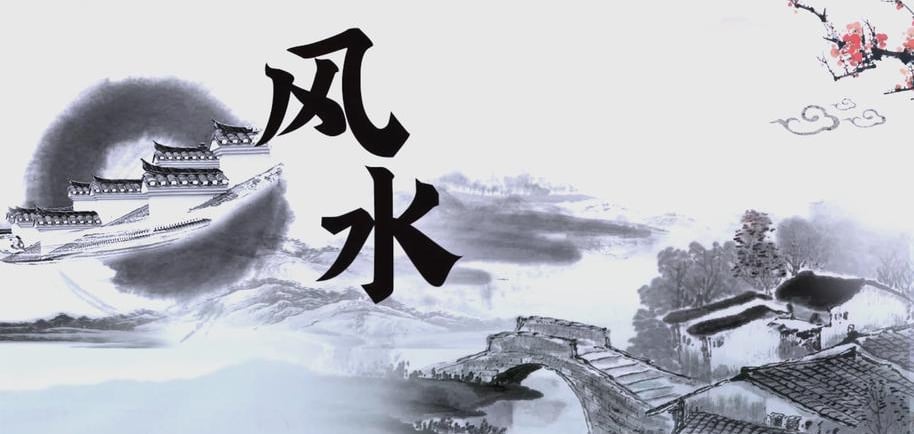Feng Shui | The Wisdom of Living in Harmony Between Heaven and Earth
6/13/2025


The moment we hear "Feng Shui," it feels shrouded in mystery. We often picture a Feng Shui master wandering around with a Luopan compass, muttering words we can't understand. So, what exactly is Feng Shui, and is it credible?
I. What is Feng Shui? Is it Reliable?
"Feng Shui," also known as Qing Wu Shu or Qing Nang Shu, is academically referred to as "Kan Yu." What is its purpose? Feng Shui was originally the art of observing the land—a method for on-site examination of geography, hence also called Earth Physiognomy or Kan Yu. It is a science studying the relationship between the environment and cosmic laws. The ancients believed that "the universe is like a large body, the body is like a small universe," meaning the cosmos and humans are one interconnected entity, guided by the important concept of "Harmony Between Heaven and Humanity." Therefore, not only does the environment influence humans, but humans can also influence their environment.
People living in this world need dwellings—Yang Dwellings for the living and Yin Dwellings for the deceased. One's living space must harmonize with the environment to ensure health. Thus, whenever constructing palaces, residences, villages, or tombs, people would follow the guiding principles of Feng Shui to determine the location, orientation, and construction methods. We can't help but ask, is Feng Shui reliable, and what is its basis? In fact, Feng Shui emerged as early as the Warring States period. Wind and water are two natural forces, and the universe is a large magnetic field; wind and water precisely possess this large magnetic field energy. Wind represents vital energy and field potential, while water represents flow and change. Because the universe is a large magnetic field, the Luopan compass operates based on this magnetic principle.
Numerous definitions of Feng Shui have been offered throughout history. One of the earliest explanations comes from Guo Pu of the Jin Dynasty. Guo Pu authored a famous work, the Book of Burial, which states: "Burial means riding the vital Qi. Qi disperses when carried by the wind, and stops when bounded by water. The ancients gathered it to prevent dispersion, and guided it to ensure retention. Therefore, it is called Feng Shui. The methods of Feng Shui consider obtaining water as superior, and containing wind as secondary." Here, Feng Shui means observing the land, with the basic principle being "containing wind and gathering water." The ancients considered wind a pathogenic force that could invade the body and cause illness, while water, being fluid and likened to the highest good, is the source of life. Thus, dwellings should be chosen near water. From this, we can see that Feng Shui deals with the relationship between human dwellings (both Yang and Yin) and the environment, with the overarching principle being "Harmony Between Heaven and Humanity," seeking good fortune and avoiding harm.
II. The Core Concepts of Feng Shui
The origin of Feng Shui can be traced back to ancient times; it is said that its founder was the Taoist goddess Jiutian Xuannv, though details are scarce. Early Feng Shui primarily concerned the methods and principles for selecting sites, determining orientation, and constructing palaces, residences, villages, and tombs. The core concepts can be summarized as three fundamental principles: Harmony Between Heaven and Humanity, Balance of Yin and Yang, and the Generation and Restraint of the Five Elements.
Harmony Between Heaven and Humanity: The core idea of Feng Shui is harmony between humans and nature, achieving the state of "Harmony Between Heaven and Humanity." This concept emphasizes that humans should conform to natural laws and coexist harmoniously with their natural environment.
Yin-Yang and Five Elements: In Feng Shui theory, Yin-Yang and the Five Elements are indispensable components. Yin-Yang represents two opposing yet unified aspects, while the Five Elements refer to the five basic elements—Metal, Wood, Water, Fire, and Earth. Their interrelationships of generation and restraint form the foundation of Feng Shui theory.
In fact, while Feng Shui appears mysterious, it possesses a degree of scientific basis; it is a comprehensive science intersecting multiple disciplines. It encompasses aspects of modern science such as physics, environmental science, architectural science, climatology, geology, and ecology. Regardless of how profound its principles or complex its methods, the overarching goal is one principle: harmony between people and their environment.
Broadly, Feng Shui can be divided into two main schools: the Form School and the Compass School. A finer classification reveals many smaller branches. For instance, the Form School includes the Luan Tou (Landform) Branch, Xiang (Image) Branch, and Xing Fa (Form Method) Branch. The Compass School is more numerous, including the Eight Mansions Branch, Destiny Branch, Three Combinations Branch, Fangua Branch, Flying Stars Branch, Five Elements Branch, Xuan Kong Da Gua Branch, Eight Trigrams Branch, Nine Star Flying泊 Branch, Qimen Branch, Three Essentials of Yang Dwellings Branch, Twenty-Four Mountains Branch, Star Constellations Branch, and Jin Suo Yu Guan (Golden Lock and Jade Pass) Branch. Additionally, there is a less influential branch called the Destiny Branch, which originally involved reading human destiny but was applied to Feng Shui, interpreting the relationship and influence between one's living environment and their birth time.
With the development of the times, Feng Shui has undergone historical phases from affirmation to negation, and then to the negation of the negation. It is increasingly recognized by many knowledgeable individuals, particularly gaining popularity among the post-80s and post-90s generations.
In reality, Feng Shui itself is scientific. However, the prevalence of certain unskilled charlatans has led to many misunderstandings about Feng Shui. To borrow a phrase, "The sutra is a good sutra, but it was chanted crookedly by a monk with a crooked mouth." The same applies to Feng Shui. Feng Shui is not mysterious; it is merely somewhat profound.
